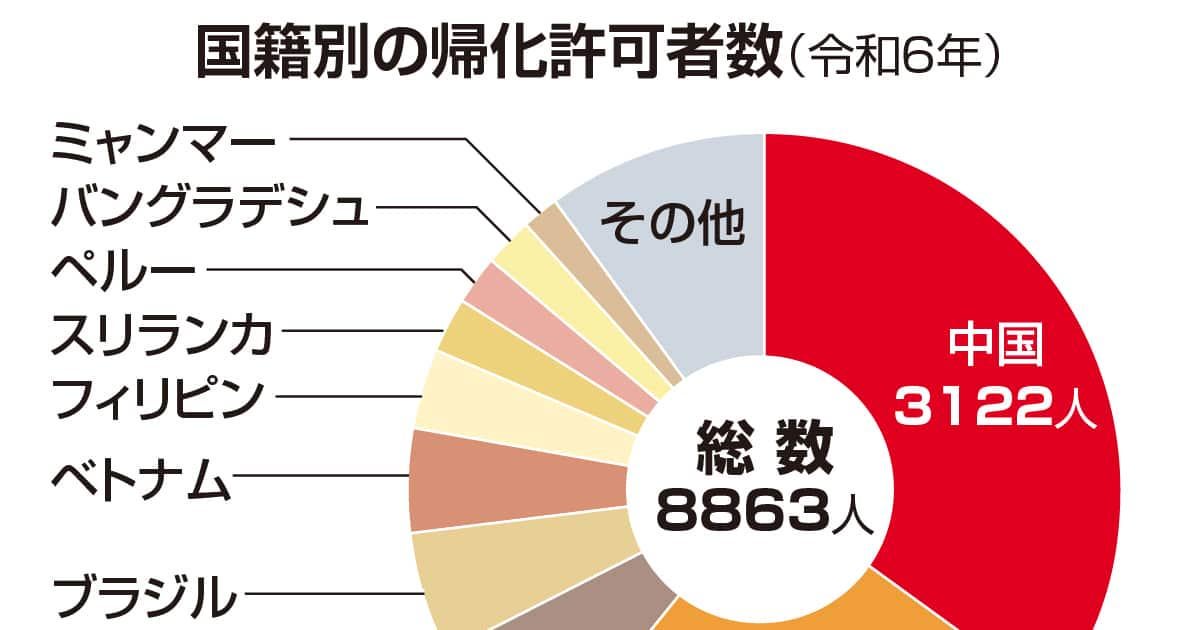
Last year, about 8,800 foreigners became Japanese citizens. The largest group was from China, with about 3,100 people—more than those from Korea (South and North) for the first time in about 50 years. Naturalizations from Nepal, Sri Lanka, and other South Asian countries are also rising and have doubled over the past five years.
According to Japan’s Justice Ministry, naturalizations tend to go up or down depending on the economy. In 2024, 8,863 people were approved, which is within the usual range of 7,000–9,000 in recent years. The record high was about 17,600 in 2003.
Chinese applicants overtook Korean ones last year. The number of Koreans becoming Japanese citizens is going down, partly because fewer “special permanent residents” (mostly long-term Korean residents) are applying.
More South Asians—especially from Nepal, Sri Lanka, and Myanmar—are now becoming citizens. In 2019, people from countries other than China or Korea made up about 1,700 naturalizations; by last year, that number had doubled to about 3,500.
Becoming a citizen (naturalization) is seen by some as easier than getting a permanent residency visa. Citizenship usually requires 5 years of living in Japan, while permanent residency needs 10. Critics say this has created a “reversal,” where getting citizenship is actually easier.
To become a citizen, applicants must:
- Be 18 or older
- Have lived in Japan legally for 5+ years
- Have good behavior
- Be able to support themselves financially
- Give up their old nationality (no dual citizenship)
- Obey Japan’s constitution
- Have basic Japanese speaking, reading, and writing ability
One man who recently became a citizen said the only big differences between citizenship and permanent residency are voting rights and the risk of deportation.
As of April 1, 2025, the names of new citizens are no longer made public for 90 days in the official government bulletin. The change was made to protect personal privacy.
by MagazineKey4532
